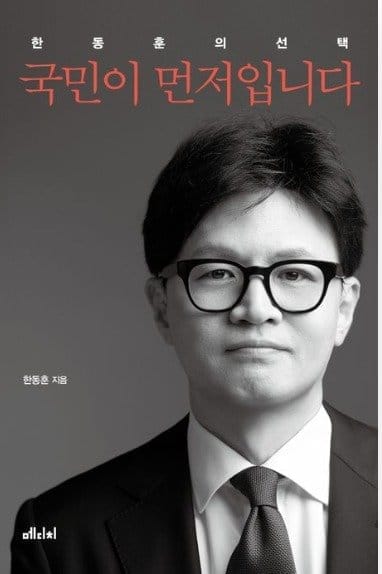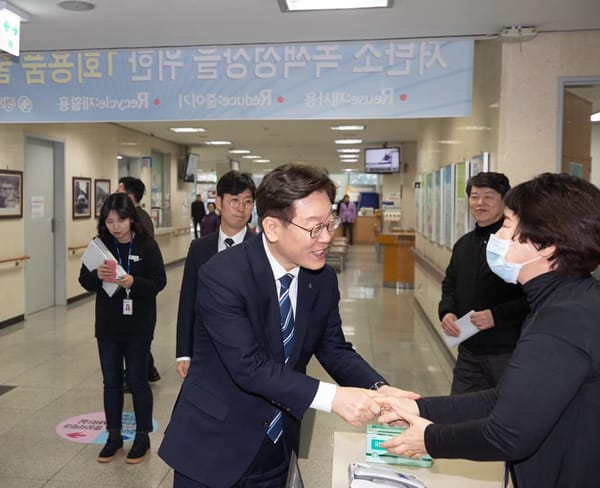Image: Poster for The Glory, a hit Netflix show on grisly episodes on school bullying. Credit: Netflix.
Continuing its pattern of appointing former prosecutors to virtually any open position in the government, the Yoon Suk-yeol 윤석열 administration nominated Jeong Sun-sin 정순신, a former prosecutor who had worked with Yoon at the Supreme Prosecutor’s Office 대검찰청, as the second-ever chief of the National Office of Investigation (NOI) 국가수사본부 under the National Policy Agency 경찰청. The NBI, was established in 2021 by the Moon Jae-in 문재인 administration to handle additional investigative tasks previously handled by the Public Prosecutors’ Office 검찰청. (See previous coverage, “Prosecutors vs. Police.”)
The following day, online news outlet eDaily 이데일리 issued a bombshell report. On February 25, the news site ran an exclusive detailing a grisly episode of bullying by Jeong’s son, and Jeong’s attempt to cover it up. As a boarding student at the prestigious Minjok Leadership Academy 민족사관고등학교, Jeong’s son relentlessly bullied his classmate, calling him “a pig from Jeju-do” and “leftist commie,” to the point that the classmate attempted suicide.
Jeong’s son also reportedly bragged about the fact that his father was a prosecutor, saying: “All prosecutors get paid bribes” and “My father knows a lot of powerful people.” The school’s disciplinary committee ordered Jeong’s son to be transferred, noting that he “was not treating his classmate as a person of equal humanity” and “was not showing any remorse.” The disciplinary committee also ordered ten hours of “special education” for Jeong and his wife, indicating a serious failure on the part of the parents.
Remarkably, Jeong hired an attorney for his son and issued a legal challenge against the school’s transfer order. Jeong claimed his son was “merely engaged in verbal abuse, which was unlikely to cause the damage claimed by [the classmate],” appealing each loss all the way up to the Supreme Court 대법원, where he finally lost the case. But for Jeong, winning was not the point; the purpose of the litigation campaign was to delay the final disposition of the transfer order, which would have damaged his son’s college prospects.
On that front, Jeong was successful: while the lawsuit was still pending, his son was admitted to the prestigious Seoul National University 국립서울대학교. Commenting on Jeong’s unusually litigious attempt to whitewash his son’s record, a school administrator said: “We thought, ‘Wow, we have a professional on our hands.’ He took steps that most people wouldn’t even dream of.” The conduct by Jeong and his son, coming on the heels of hit Netflix drama The Glory 더 글로리, which depicts a horrific incidence of school bullying, has drawn public outrage.
But even setting aside the case itself, the circumstances surrounding eDaily’s revelation are intriguing for a number of reasons. Under normal circumstances, the vetting process for political nominees would have flagged a controversial issue such as this one. One of the Yoon Suk-yeol 윤석열 administration’s many controversies was its move to abolish the Office of the Senior Secretary of Civil Affairs 민정수석비서관 under the Office of the President, which previously handled the political nominee vetting process.
Instead, the Yoon administration established a new bureau under the Ministry of Justice 법무부 to vet political nominees, giving rise to concerns that the Justice Minister would be able to all but make or break any nomination. (See previous coverage, “New Bureau for Vetting.”) In this instance, however, the vetting process either did not function properly, or gave a pass to Jeong, a former prosecutor, for an issue that would have ended the candidacy of most nominees.
The timing of the eDaily report also raised eyebrows. Senior police officials have objected strongly to the Yoon administration’s attempt to reverse the Moon administration’s prosecution reforms and reassert dictatorship era-style control over the police. (See previous coverage, “Police Colonels Protest New Bureau.”)
Strategic leaks of damaging information about politicians, kneecapping their chances for higher office, have long been a part of prosecutors’ playbook. Many suspect that in this instance, the police are giving Jeong and the prosecutors a taste of their own medicine. Apparently, it worked: Jeong withdrew on February 26, just two days after his nomination.








